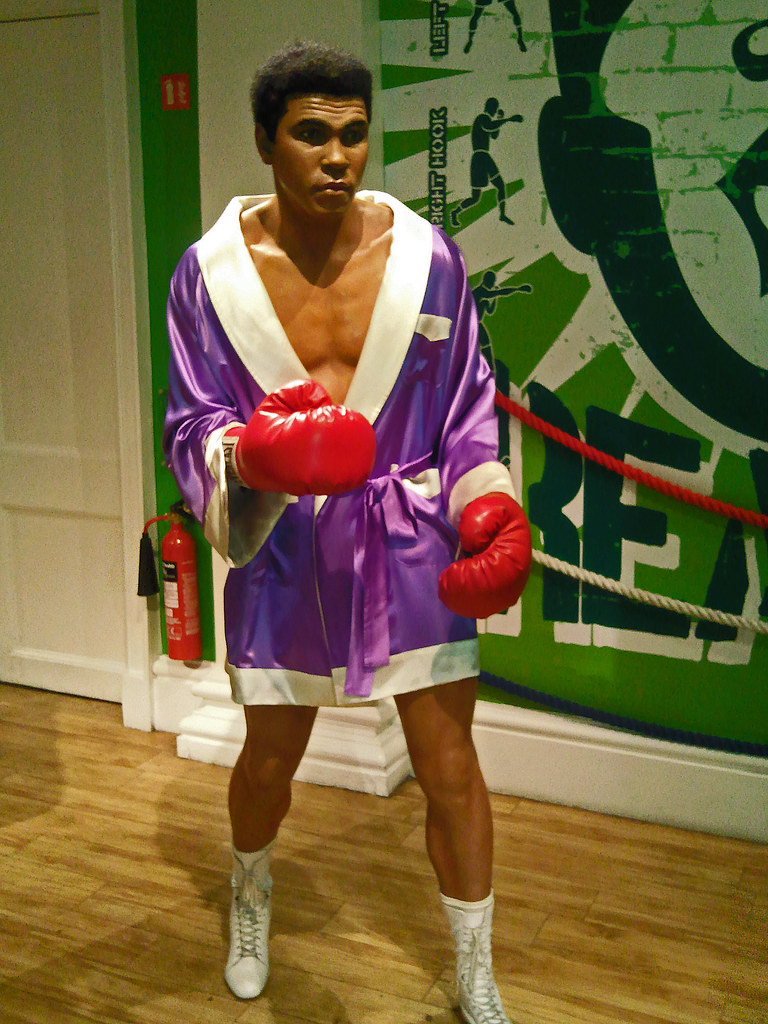
In the annals of sports history, few figures cast a shadow as long and as complex as Muhammad Ali. He was a phenomenon, a poet of the ring whose movements were described as floating like a butterfly and stinging like a bee. Yet, beyond the dazzling footwork and the thunderous punches, Ali was a man of profound conviction, whose decisions outside the ropes would redefine not only his own career but also the very landscape of American consciousness regarding civil rights, faith, and war.
His journey was one of constant evolution and challenge, transforming from Cassius Clay, a young Olympic gold medalist with boundless charisma, into Muhammad Ali, a global cultural icon who dared to defy the most powerful establishments of his era. This article delves into the pivotal moments that led to his refusal to fight in Vietnam, the immense personal and professional cost he incurred, and the unwavering spirit that propelled him through one of the most tumultuous periods of his life. We’re not just looking at a boxer; we’re examining a revolutionary.
Ali’s story is a compelling narrative of personal conviction clashing with national duty, where the personal beliefs of one man resonated with a generation and forced society to confront uncomfortable truths. It’s a story backed by in-depth reporting, focusing on the human element of sports, the journey of an athlete, and the challenges and motivations that shaped a legend. Prepare to explore the defining moments of ‘The Greatest’ champion who risked everything for what he believed was right.
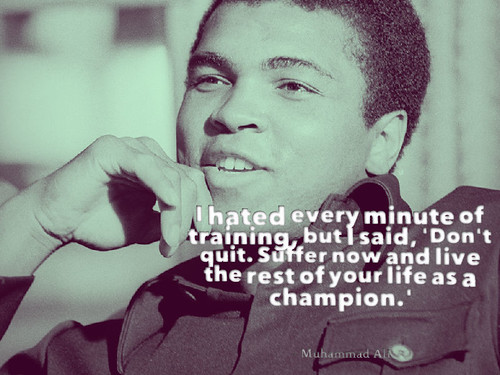
1. **The Ascent to Heavyweight Champion and Conversion to Islam**Cassius Clay, as he was known then, burst onto the professional boxing scene with an undeniable talent and an even more undeniable personality. His early career saw him amass an impressive record of 19–0 with 15 wins by knockout between 1960 and 1963, defeating boxers like Doug Jones and Henry Cooper in challenging bouts. By late 1963, he had established himself as the top contender for the world heavyweight title, setting the stage for a monumental clash that would change his life forever.
On February 25, 1964, in Miami Beach, Clay faced the intimidating Sonny Liston, a dominating fighter with a fearsome reputation and ties to the mob. Despite being an 8:1 underdog, Clay shocked the world with his superior speed and mobility, outmaneuvering Liston and eventually forcing him to quit after the sixth round due to an injury. At just 22 years old, Clay became the youngest boxer to seize the title from a reigning heavyweight champion, proclaiming triumphantly, “I am the greatest! I shook up the world. I’m the prettiest thing that ever lived.”
This victory, however, was merely a prelude to an even more significant personal transformation. Just two days after his stunning win over Liston, Clay delivered another “sucker punch to the world,” as noted by Britannica: he announced his conversion to Islam. He initially took the name Cassius X, reflecting his affiliation with the Nation of Islam, before formally changing it to Muhammad Ali. This conversion was not just a change of name; it was a profound declaration of identity and faith that would guide his actions and beliefs for the rest of his life, fundamentally altering his relationship with the world around him.
His new name, Muhammad Ali, represented a rejection of what he called a “slave name” and an embrace of his newfound spiritual and cultural identity. This bold move, coming at the height of his athletic prowess, signaled to the world that Ali was not merely an athlete but a man deeply committed to his principles. It set the stage for a period where his convictions would be tested like never before, challenging him to defend his beliefs not with his fists, but with his conscience.

2. **The Call to War: Vietnam and Ali’s Draft Eligibility**As Muhammad Ali reigned as the World Heavyweight Champion, another significant conflict was escalating on the global stage: the Vietnam War. This war, a contentious and divisive issue for the United States, began to cast a long shadow over the lives of young American men, including athletes. Ali, who had once been deemed ineligible for the draft due to scoring poorly on an exam at age 18, found his status dramatically altered as the war intensified.
President Lyndon B. Johnson’s expansion of military operations in Vietnam led the army to lower its requirements for induction. This change meant that Ali, who had previously been sure he wouldn’t be drafted, suddenly became eligible for service. The call came in 1967, demanding that the heavyweight champion report for induction, placing him directly at a crossroads between his burgeoning faith and his country’s military obligations.
The revised draft status on March 9, 1966, was a turning point. For Ali, a devout Black Muslim, the prospect of fighting in Vietnam was irreconcilable with his religious and ethical beliefs. He openly declared himself a conscientious objector, a stance that immediately put him at odds with the government and a significant portion of the American public. The stage was now set for a confrontation that would transcend sports, becoming a defining moment in the Civil Rights Movement and the anti-war protests.
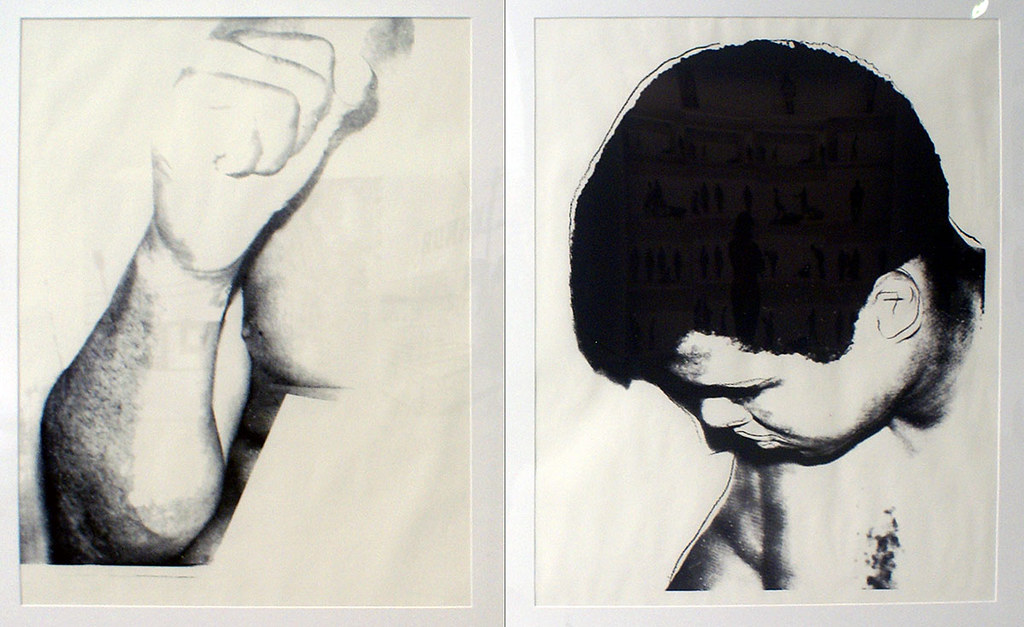
3. **”I Ain’t Got No Quarrel”: Ali’s Refusal of Induction**The moment of truth arrived on April 28, 1967. Muhammad Ali, then 25 years old, appeared at the Houston Induction Center for his scheduled induction into the U.S. military. This was not a routine visit; it was a highly anticipated event, closely watched by the media and the nation, as Ali had publicly voiced his refusal to serve. The atmosphere was charged with tension and anticipation, reflecting the national divide over the war and Ali’s controversial position.
When his name was called at roll call, Ali repeatedly refused to step forward, despite being explicitly warned by an officer that this act constituted a felony offense, punishable by up to five years in prison and a $10,000 fine. His refusal was calm yet resolute, a powerful act of civil disobedience from one of the most recognizable figures in the world. He then returned to the induction room, was given another opportunity to take the oath, and refused once more.
Following his steadfast refusal, Ali was asked to sign a statement affirming his non-compliance. He was then led to another room where the severe penalties for his actions were explained to him. “Muhammed Ali has just refused to be inducted into the U.S. Armed Forces,” announced Lt. Col. J.D. McKee, commandant of the induction center, signaling the formal commencement of legal proceedings against the heavyweight champion.
Immediately after leaving the induction center, Ali, dressed sharply in a blue suit, strode before waiting TV cameras and newsmen. Instead of making further comments, he passed out a four-page typewritten statement bearing his signature, reiterating his position. In it, he famously articulated his reasons, stating, “I ain’t got no quarrel with them Viet Cong,” and explaining, “My conscience won’t let me go shoot my brother, or some darker people, or some poor hungry people in the mud for big powerful America.” This quote, echoing his deepest convictions, would become an enduring symbol of anti-war sentiment and resistance.
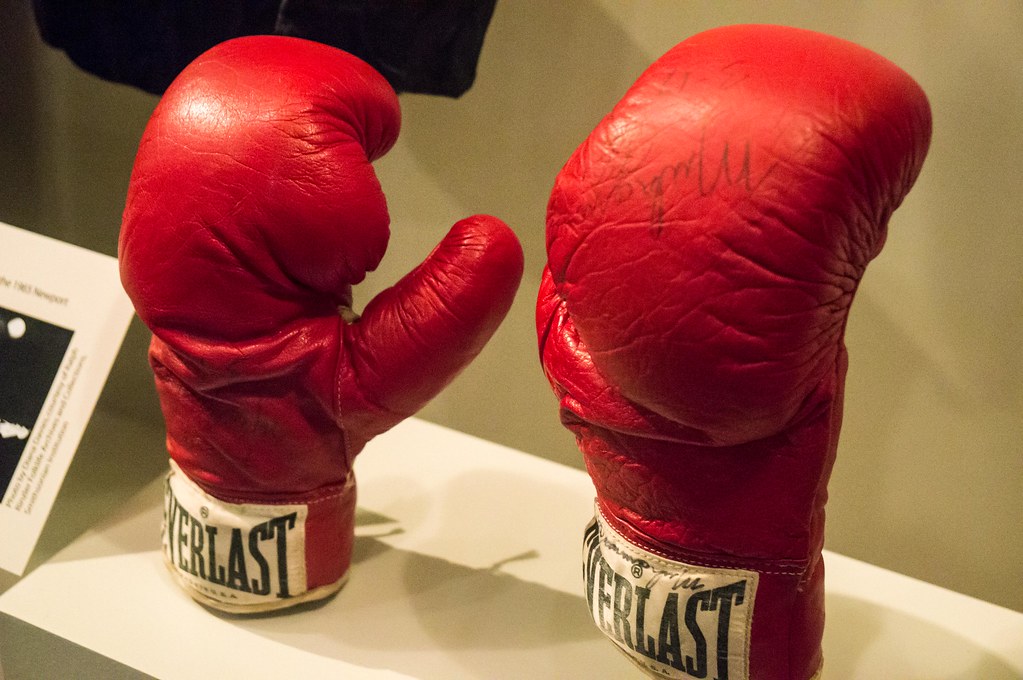
4. **The Immediate Fallout: Stripped Title, Lost License, and Conviction**The consequences for Muhammad Ali’s refusal were swift and severe, striking at the very core of his professional life. Within hours of his departure from the Houston Induction Center, the New York State Athletic Commission and the World Boxing Association promptly stripped him of his world heavyweight title. This act wasn’t merely a symbolic gesture; it was an unequivocal statement from the establishment, demonstrating the grave repercussions of defying the government during wartime.
Beyond losing his hard-won championship belt, Ali also lost his boxing license, effectively banning him from participating in professional fights across the United States. This unprecedented move meant that at the peak of his physical prowess, at just 25 years old, one of the greatest athletes of his generation was abruptly prevented from pursuing his livelihood. His trainer, Angelo Dundee, would later lament that Ali was “robbed of the best years of his life” due to this forced inactivity.
The legal ramifications quickly escalated beyond administrative penalties. On June 20, 1967, less than two months after his refusal, Ali was convicted of draft evasion. The sentence was harsh: the maximum penalty of five years in prison and a $10,000 fine. While he thankfully remained out of prison as his case moved through a lengthy appeal process, the specter of incarceration loomed large over him for years.
The combination of losing his title, his license, and facing a criminal conviction sent a clear message. The establishment intended to make an example of Muhammad Ali. Despite the immense pressure and the devastating impact on his career and freedom, Ali steadfastly maintained his position, refusing to waver in his commitment to his principles, even as he stood in what he called the ‘firing line’ of public and governmental scorn.
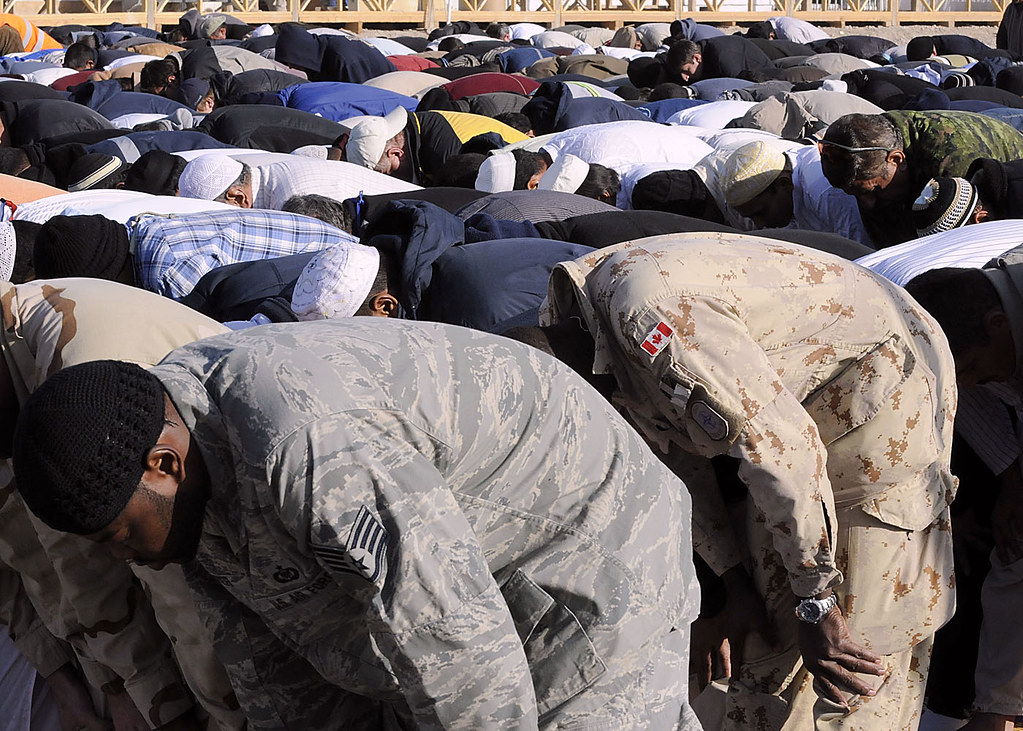
5. **Ali’s Principled Stand: Faith, Race, and Conscientious Objection**Muhammad Ali’s refusal to serve in Vietnam was deeply rooted in his religious beliefs as a Black Muslim and his powerful understanding of racial injustice. He articulated his position not merely as a refusal to fight, but as a moral imperative born from his faith and his identity. Ali’s conversion to Islam provided him with a framework that guided his objection, as he stated he was a conscientious objector on the grounds of faith.
Britannica noted that the status of “conscientious objector” couldn’t be automatically applied to Ali in the conventional sense. This was because, theoretically, if a war concerned Islam, he would be willing to fight. However, Ali’s specific objection to the Vietnam War was that it was not a holy war for his faith, and it pitted him against “some darker people, or some poor hungry people in the mud for big powerful America” who had never wronged him. This nuance highlighted the personal and specific nature of his moral compass.
His impassioned statements revealed a profound connection between his racial experience in America and his refusal to fight overseas. “They never called me n*gger, they never lynched me, they didn’t put no dogs on me, they didn’t rob me of my nationality, rape and kill my mother and father… Shoot them for what?” Ali powerfully questioned the hypocrisy of being asked to fight for a country that denied full rights and dignity to its Black citizens, juxtaposing domestic injustice with foreign conflict. This was not merely an anti-war stance; it was a deeply personal reflection on systemic racism.
Ali reinforced this position in the four-page statement he distributed after his induction refusal. He insisted upon his “rights to pursue my livelihood in accordance with the same rights granted to other men and women who have disagreed with the policies of whatever administration was in power at the time.” He further declared, “I have the world heavyweight title, not because it was ‘given’ to me… but because I won it in the ring through my boxing ability.” This statement underscored his belief that his athletic achievements should not be contingent on compromising his deeply held moral and religious convictions.
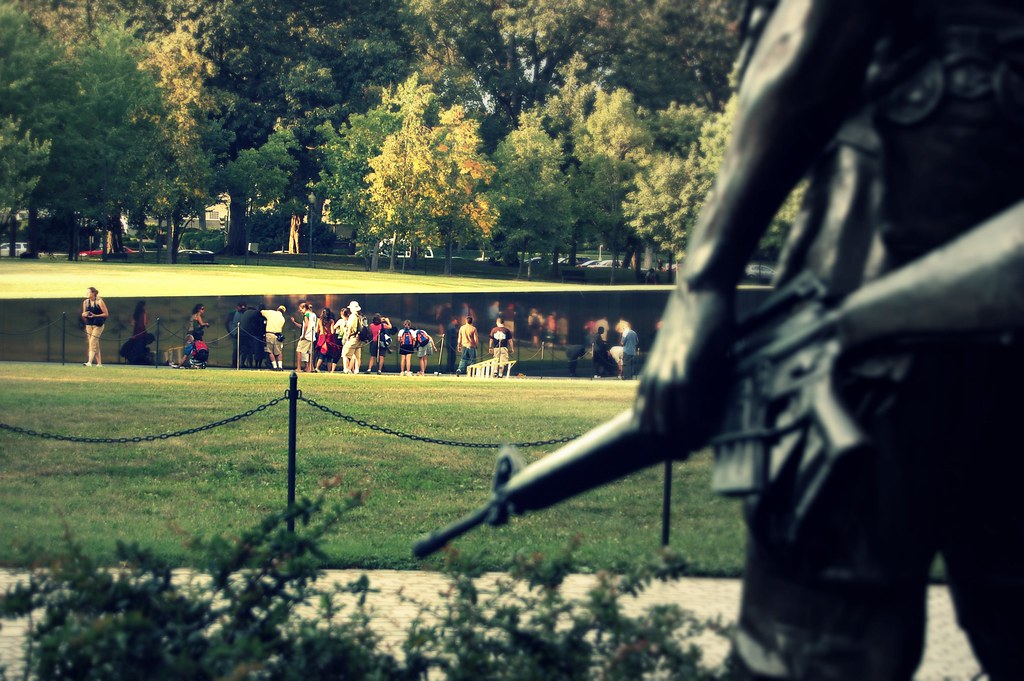
6. **The Public Firestorm: Backlash and Criticism from All Sides**Muhammad Ali’s courageous stance against the Vietnam War ignited a fierce public firestorm, making him, for a time, “perhaps the most hated man in the country,” as noted by one source. At a time when the war was still popular among significant segments of the American public, Ali’s eloquent refusal and outspoken criticism were not taken lightly. He became a national pariah, facing condemnation from media, political, and even sporting establishments.
Public figures derided him on national television, with some vociferously calling for his imprisonment. A striking example of this intense animosity came from American television host David Susskind, who, addressing Ali, stated, “I find nothing amusing or interesting or tolerable about this man. He’s a disgrace to his country, his race, and what he laughingly describes as his profession. He is a convicted felon in the United States… He will inevitably go to prison, as well he should. He is a simplistic fool and a pawn.” This harsh monologue epitomized the widespread antipathy Ali encountered.
Even within the African American community, Ali’s position drew criticism from some prominent figures. Jackie Robinson, the trailblazing first African American to play in Major League Baseball and a former military officer, voiced his concerns. Robinson argued that Ali’s refusal was “hurting, I think, the morale of a lot of young Negro soldiers over in Vietnam,” suggesting that Ali, who had benefited greatly from American society, was not showing appreciation to a country that gave him “a fantastic opportunity.”
Despite the avalanche of criticism and the isolation he experienced, Ali remained remarkably unyielding. He responded to those who believed he had lost everything by saying, “I did not lose a thing up until this very moment, I haven’t lost one thing. I have gained a lot. Number one, I have gained a peace of mind. I have gained a peace of heart.” This profound declaration showcased his internal strength and the deep conviction that sustained him through a period when the entire nation seemed to turn against him.

7. **The Unyielding Legal Battle and the Supreme Court’s Verdict**Following his conviction for draft evasion, Muhammad Ali found himself entangled in a protracted legal saga that would define his life outside the ring for several years. The maximum penalty of five years in prison and a $10,000 fine loomed large, a constant threat despite his legal team’s success in keeping him out of jail while the case navigated the complex American judicial system. This was more than a personal fight; it was a battle for his beliefs, a testament to his steadfast refusal to compromise his conscience, even when facing the full might of the U.S. government.
His attorneys tirelessly appealed the decision, culminating in one of the most significant legal victories of his life. In 1971, the U.S. Supreme Court agreed to hear his case. Justice William Brennan, a liberal stalwart, was instrumental in convincing his colleagues to review the conviction. A fascinating detail emerged during the deliberations when Justice John Marshall Harlan II, initially aligned with the majority, was persuaded by a clerk to read Elijah Muhammad’s “Message to the Blackman in America.” This act of intellectual curiosity proved pivotal, leading Harlan to switch his vote, convinced of Ali’s sincerity in his conscientious objection as a Black Muslim.
Ultimately, on June 28, 1971, the Supreme Court unanimously overturned Ali’s conviction for evading the draft. While the official ruling was based on “narrow technical grounds” to achieve unanimity, the decision was a monumental victory for Ali and a validation of his principled stand. It signaled a profound shift in public sentiment regarding both the Vietnam War and individual liberties, cementing Ali’s role not just as an athlete but as a significant figure in the counterculture and civil rights movements. Though the victory came at immense personal and professional cost, it unequivocally cleared his name and paved the way for his return.
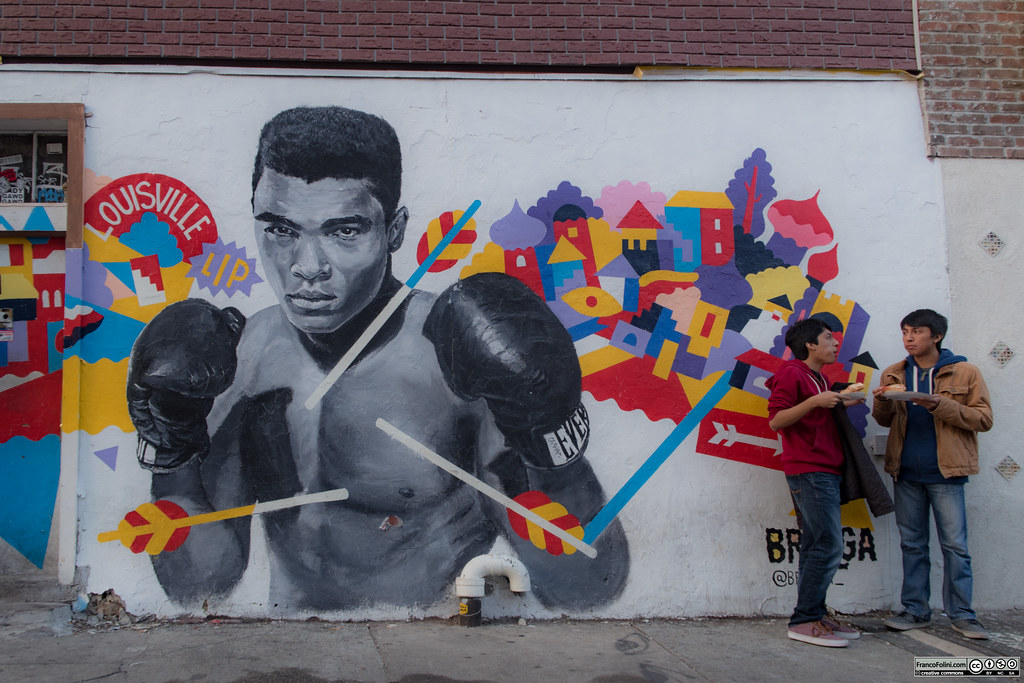
8. **The Triumphant Return to the Ring**As the legal battles slowly turned in his favor, the boxing world eagerly anticipated Muhammad Ali’s return. The New York State Supreme Court’s decision to reinstate his boxing license was the first tangible sign that ‘The Greatest’ could once again grace the squared circle. After nearly four years of forced inactivity during his prime fighting years, the prospect of Ali stepping back into the ring ignited a feverish excitement among fans and media alike, symbolizing a defiant comeback against the establishment that had sought to silence him.
His triumphant return materialized on October 26, 1970, in Atlanta, where he faced Jerry Quarry. The fight was more than just a boxing match; it was a global event, a declaration that Muhammad Ali was back and ready to reclaim what he believed was rightfully his. Ali wasted no time in demonstrating his enduring skill and power, knocking out Quarry in the third round. This dominant performance served as a powerful statement, silencing doubts about his conditioning and sending a clear message to the heavyweight division: the champion had returned.
This victory set the stage for one of the most anticipated bouts in boxing history: the “Fight of the Century” against Joe Frazier on March 8, 1971. Held at Madison Square Garden, it pitted two undefeated heavyweight champions against each other in a clash that transcended sport, becoming a cultural phenomenon. Despite a valiant effort, Ali suffered his first professional loss in a grueling 15-round decision, a defeat that only fueled his legendary drive and set the stage for future epic encounters, firmly re-establishing him at the pinnacle of heavyweight boxing.
Read more about: From Rock Bottom to Red Carpet: 15 Celebrities Who Proved It’s Never Too Late For An Epic Comeback
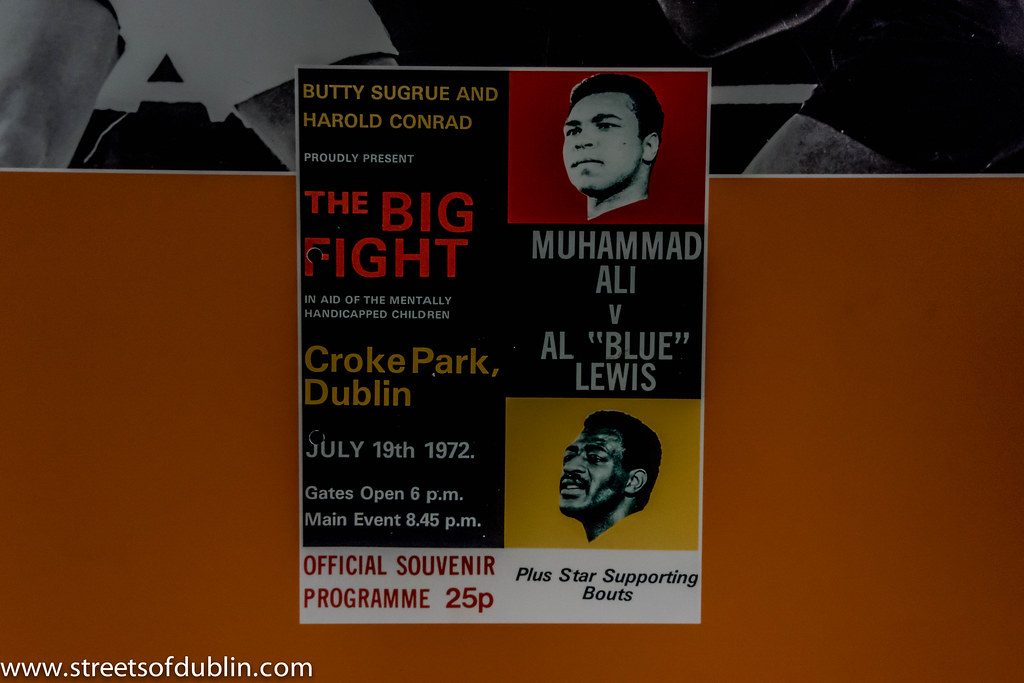
9. **The Evolution of a Champion’s Style**Muhammad Ali’s forced hiatus from boxing, spanning nearly four years during what should have been his absolute prime, inevitably took a toll on his physical capabilities. His long-time trainer, Angelo Dundee, poignantly observed that Ali was “robbed of the best years of his life.” The Ali who returned to the ring, while still undeniably great, was a different fighter than the electrifying, seemingly untouchable Cassius Clay who “floated like a butterfly” in the mid-1960s. The younger Ali was characterized by unparalleled speed and fluidity, a dancer in the ring who “seemed impossible to hit.”
Upon his return, the physical changes were apparent. Dundee noted that Ali was “more flat-footed,” requiring him to “go in and fight and take more punishment.” This necessitated a significant evolution in his fighting style. The pure artistry of his early career, relying heavily on elusive footwork and quick reflexes, had to adapt to a slightly slower, more grounded approach. He became a more resilient, tactical fighter, employing strategies that maximized his experience, intelligence, and incredible chin.
This adaptation was most famously epitomized by the development and mastery of the “rope-a-dope” technique. Instead of constantly dancing, Ali would lean back on the ropes, covering up and allowing opponents to punch him, strategically absorbing punishment while tiring them out. This brilliant, unconventional strategy conserved his energy, frustrated his adversaries, and allowed him to unleash devastating counter-attacks when they were most vulnerable. It was a testament to his profound understanding of boxing and his ability to innovate under pressure, ensuring that even a physically altered Ali remained “the best among all of his opponents.”
Read more about: Rev Up Your Engines! These 14 Stars Boast Jaw-Dropping, Priceless Classic Car Collections
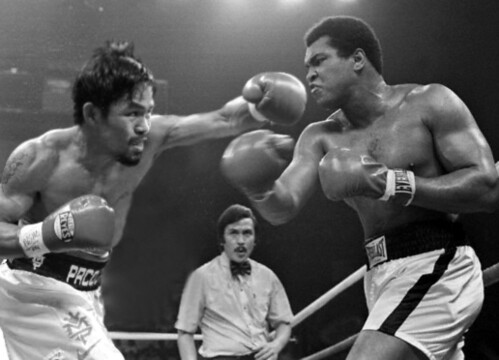
10. **The Historic Heavyweight Title Reclamations**Muhammad Ali’s career after his ban was defined not just by his return, but by a series of legendary contests that saw him reclaim the heavyweight title multiple times, solidifying his status as an unparalleled icon. After his initial loss to Joe Frazier in the “Fight of the Century,” Ali sought redemption. He faced Frazier again in a January 1974 rematch at Madison Square Garden, this time defeating his fierce rival by decision in 12 rounds, setting the stage for even greater triumphs.
Later that same year, on October 30, 1974, Ali etched his name deeper into boxing lore with the iconic “Rumble in the Jungle.” Held in Kinshasa, Zaire (now the Democratic Republic of Congo), this monumental bout pitted him against the then-undefeated, seemingly invincible George Foreman, who was widely favored to win. Ali, the underdog, brilliantly employed his newly adapted “rope-a-dope” strategy, absorbing Foreman’s powerful punches while verbally taunting him, before unleashing a stunning flurry in the eighth round to knock out Foreman and reclaim the world heavyweight championship.
The rivalry with Joe Frazier was far from over. On October 1, 1975, they met for a third and final time in the “Thrilla in Manila,” a brutal, grueling contest in the Philippines that is widely regarded as one of the greatest boxing matches in history. Both fighters pushed themselves to their absolute limits in the stifling heat, delivering and absorbing immense punishment. Ali emerged victorious after 14 punishing rounds, solidifying his dominance over his toughest adversary and cementing his reputation for unparalleled courage and resilience in the face of adversity.
Even after these legendary victories, Ali’s journey as champion wasn’t complete. On February 15, 1978, he lost his title in a stunning upset to Leon Spinks. However, true to his indomitable spirit, he immediately sought a rematch. Seven months later, on September 15, Ali defeated Spinks to win the heavyweight title for an unprecedented third time, making him the only fighter to achieve this feat. This final reclamation underscored his enduring greatness and cemented his legacy as a fighter who always found a way to win, against all odds and expectations.
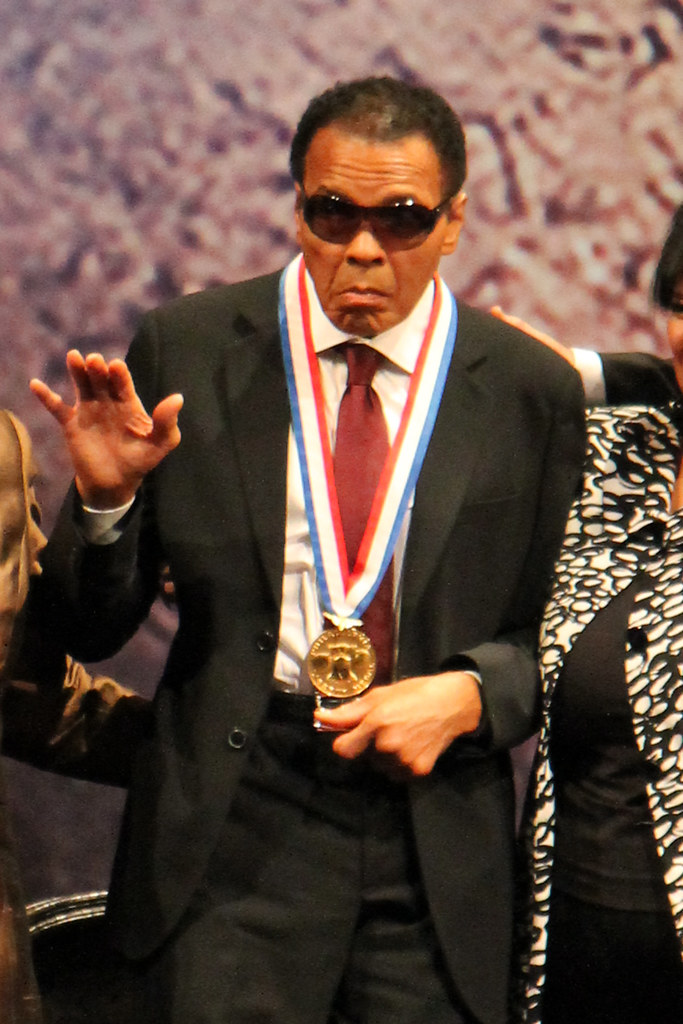
11. **Beyond the Ropes: A Global Cultural Icon and Activist**Muhammad Ali’s impact extended far beyond the confines of the boxing ring, transforming him into a global cultural icon and a potent symbol of social activism. During his three-year ban from boxing, a period when the Vietnam War was becoming increasingly unpopular, Ali didn’t retreat from the public eye. Instead, he embraced a new role, becoming a prominent and compelling speaker at college campuses across the U.S. These engagements allowed him to articulate his anti-war sentiments and his views on racial injustice to a burgeoning counterculture movement.
His articulate and passionate arguments, often delivered with his characteristic charisma and wit, resonated deeply with a generation disillusioned by war and grappling with questions of civil rights. Ali didn’t just speak against the war; he connected it to the systemic racism faced by African Americans, powerfully questioning why he should fight for a country that denied him full equality. He asked, “My conscience won’t let me go shoot my brother, or some darker people, or some poor hungry people in the mud for big powerful America… And shoot them for what? They never called me n*gger, they never lynched me.” This direct, unvarnished truth silenced many of his critics and amplified his message.
Ali became a high-profile figure of racial pride, his defiance serving as an inspiration during the civil rights movement. He embodied a new kind of Black confidence and unapologetic self-assertion that challenged prevailing norms. His refusal to conform, whether by denouncing his “slave name” or by standing firm against the draft, made him a powerful symbol of independence and integrity. He forced society to confront uncomfortable truths about justice, faith, and national identity, leaving an indelible mark on the American consciousness.
His statements, such as, “I am America. I am the part you won’t recognize. But get used to me—black, confident, cocky; my name, not yours; my religion, not yours; my goals, my own. Get used to me,” encapsulated his audacious spirit. This was not merely the boast of a boxer; it was the manifesto of a man who believed in his right to self-determination and who used his platform to advocate for broader human rights. He transcended boxing to become a voice for the voiceless, a champion for justice whose influence resonated globally.
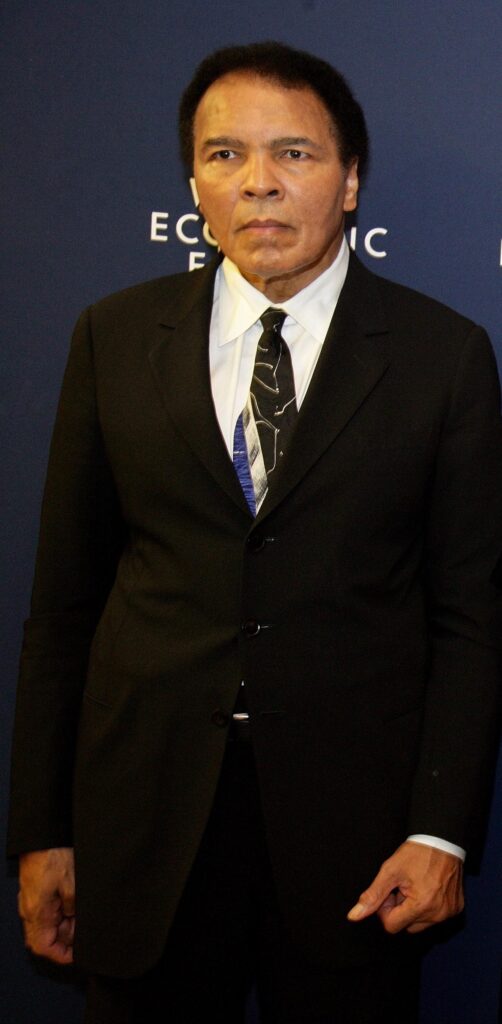
12. **An Enduring Legacy: The Greatest Transcends Sport**Muhammad Ali officially retired from boxing in 1981, concluding his illustrious career with a professional record of 56 wins and 5 losses. A few years later, in 1984, the world learned of his diagnosis with Parkinson’s syndrome, a condition that slowly but relentlessly diminished his once-vibrant physical and verbal prowess. Despite the challenges posed by his illness, Ali remained an active public figure, dedicating his later years to religion, philanthropy, and global activism, continuing to inspire millions with his unwavering spirit and commitment to humanitarian causes.
His passing on June 3, 2016, at the age of 74 due to septic shock, prompted a global outpouring of grief and tributes. Leaders, athletes, and ordinary citizens from around the world mourned the loss of a man whose influence spanned continents and generations. As CBC Sports eloquently noted, Ali “forced society to confront feelings about civil rights, race, religion and war through his defiance of convention and his own government,” underscoring his profound impact on the fabric of society far beyond his athletic achievements.
Ali’s legacy is arguably unmatched in the annals of sports. He was not just a boxer; he was a revolutionary, a poet, and a moral compass for many. His journey from Olympic gold medalist to world heavyweight champion, and then to a convicted felon who regained his freedom and his titles, is a compelling narrative of resilience. He consistently asserted his independence, reinvented himself, and courageously went up against the most powerful opponents, both in and out of the ring.
President Obama, in his poignant remarks after Ali’s death, perfectly captured this enduring legacy. He reflected on the personal cost of Ali’s stance during the Vietnam era, acknowledging that it “would earn him enemies on the left and the right, make him reviled, and nearly send him to jail.” Yet, Obama concluded, “But Ali stood his ground. And his victory helped us get used to the America we recognize today.” Indeed, Ali’s life was a testament to the power of conviction, a shining example of how one individual, by daring to stand up for what is right, can not only change their own destiny but also profoundly shape the course of history.
Read more about: Unlocking the Magic of Old Hollywood: 10 Essential Classic Films Every Beginner Cinephile Needs to See
From the dazzling speed of his youth to the strategic brilliance of his later career, from his eloquent pronouncements to his defiant stands, Muhammad Ali truly was ‘The Greatest.’ He was a man who lived his convictions, transcended racial and political divides, and in doing so, inspired the world to dream of a better, more just future. His story continues to resonate, reminding us that courage, faith, and an unwavering belief in oneself can move mountains, even when the world seems determined to hold you down. Ali’s spirit, like his legendary movements, continues to float, and its impact continues to sting, inspiring generations to come.



